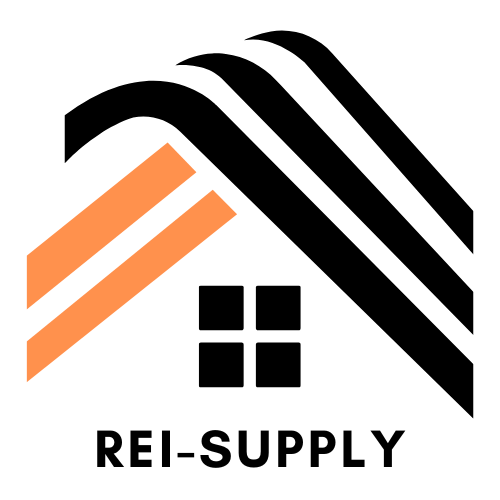Table of Contents
ToggleNavigating the world of home loans can feel like trying to solve a Rubik’s Cube blindfolded. With so many options out there, it’s easy to get lost in the maze of jargon. Enter FHA and conventional loans—two popular choices that often leave homebuyers scratching their heads.
Overview of FHA and Conventional Loans
FHA loans are backed by the Federal Housing Administration, providing options for borrowers with lower credit scores or limited funds. These loans usually require down payments as low as 3.5%, making them accessible for first-time homebuyers.
Conventional loans, however, are not government-insured, relying on private lenders for approval. A credit score of at least 620 is generally preferred for these loans. Down payment requirements for conventional loans usually range from 3% to 20%, depending on the lender and the borrower’s financial profile.
FHA loans come with mortgage insurance premiums that last for the life of the loan if the down payment is less than 10%. This leads to higher overall costs but ensures that lenders can offer lower interest rates to borrowers perceived as higher risk.
In contrast, conventional loans might require private mortgage insurance if the down payment is less than 20%. This additional cost can be canceled once the homeowner achieves 20% equity in the property, which can reduce monthly payments over time.
FHA loans typically have more flexible qualifying criteria, making them ideal for buyers who may have less-than-perfect credit. Conventional loans can be more beneficial for those who meet stricter guidelines, allowing for potentially lower interest rates and no upfront mortgage insurance.
Understanding the key differences between FHA and conventional loans helps borrowers choose the right mortgage type for their financial situation. Consideration of credit scores, down payment requirements, and insurance costs plays a crucial role in decision-making.
Key Differences Between FHA and Conventional Loans


FHA and conventional loans differ significantly in terms of down payment requirements, credit score standards, and mortgage insurance.
Down Payment Requirements
FHA loans require a down payment as low as 3.5%. Borrowers with limited savings often find this appealing. Conventional loans, however, may need a down payment ranging from 3% to 20%. A larger down payment can help borrowers avoid private mortgage insurance. Those opting for conventional financing might benefit from reduced monthly payments if they put down at least 20%. Choosing the right option hinges on financial readiness and future plans.
Credit Score Requirements
FHA loans cater to borrowers with credit scores as low as 580. This flexibility makes them accessible for individuals with varied financial backgrounds. In contrast, conventional loans generally demand a minimum credit score of 620. Higher credit scores may lead to better interest rates for conventional financing. Recognizing the implications of credit scores helps potential homeowners decide which loan type aligns with their financial situation.
Mortgage Insurance
Mortgage insurance for FHA loans comes in the form of upfront premiums and monthly payments. If the down payment is less than 10%, premiums remain for the life of the loan. Conventional loans typically require private mortgage insurance only if the down payment is under 20%. Importantly, this insurance can be canceled once the homeowner reaches 20% equity. Evaluating these differences aids borrowers in understanding long-term financial commitments.
Pros and Cons of FHA Loans
FHA loans present several benefits and drawbacks for potential homeowners. Understanding these aspects helps borrowers make informed decisions.
Advantages of FHA Loans
Accessibility stands out as a key advantage. FHA loans accept credit scores as low as 580, which benefits individuals with less-than-perfect credit. Low down payment requirements also attract homebuyers; borrowers can secure a loan with just 3.5% down. Additionally, the flexibility in debt-to-income ratios allows many to qualify even with existing financial obligations. These loans also feature fixed interest rates, providing stability in monthly payments. Furthermore, FHA loans appeal to first-time buyers and those with limited savings due to lower upfront costs.
Disadvantages of FHA Loans
FHA loans carry specific downsides as well. Borrowers face mandatory mortgage insurance premiums, which increase overall loan costs. Mortgage insurance remains for the life of the loan if the down payment is under 10%, making it less appealing over time. Additionally, property restrictions exist; homes must meet specific standards to qualify, which can limit choices. Buyers may also encounter longer processing times due to strict regulations, potentially delaying closing. Lastly, the loan limits set by FHA can restrict purchasing power in high-cost areas, making it difficult for some buyers to find suitable homes.
Pros and Cons of Conventional Loans
Conventional loans offer distinct benefits and drawbacks for borrowers. Understanding these aspects helps borrowers to evaluate their best financing options.
Advantages of Conventional Loans
Lower overall mortgage insurance premiums impact conventional loan costs positively. Flexible financing options allow down payments ranging from 3% to 20%. Borrowers appreciate the potential for competitive interest rates, especially with higher credit scores. Loan limits vary by location, providing adaptability for different housing markets. Private mortgage insurance can be canceled when homeowners reach 20% equity, resulting in significant savings as the loan progresses. Additionally, conventional loans typically involve fewer property restrictions compared to FHA loans, allowing greater freedom in property selection.
Disadvantages of Conventional Loans
Higher credit score requirements pose challenges for some applicants, often necessitating scores above 620. Larger down payments may burden borrowers, especially first-time homebuyers or those with limited savings. Conventional loans might come with longer approval timelines due to stricter underwriting standards, which can delay home purchases. Mortgage insurance applies for loans with down payments below 20%, increasing monthly expenses until equity thresholds are met. Lastly, these loans may be less accessible for individuals facing financial difficulties compared to FHA loans that support lower credit scores.





